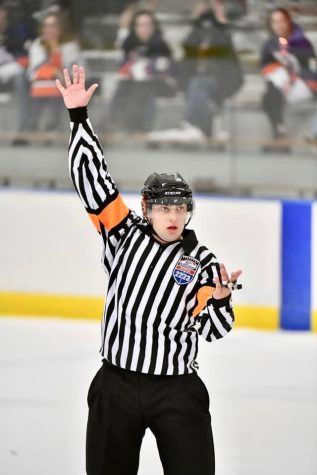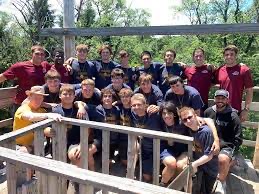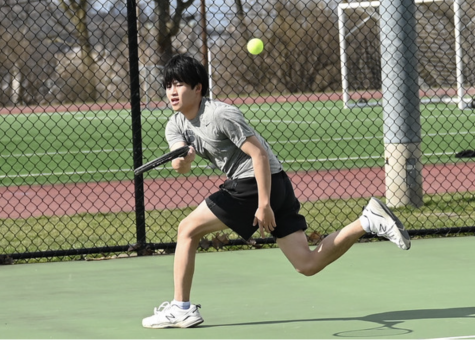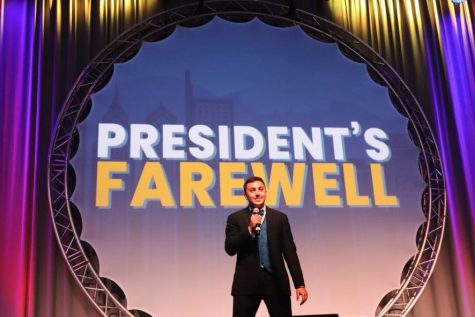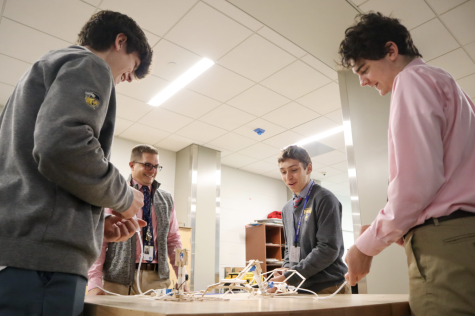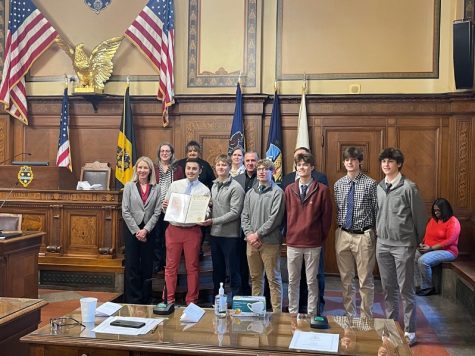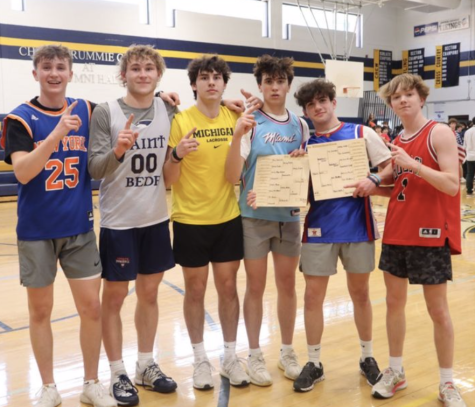Competitive Acting—My First-Year Experience with the CCFS
When I first came to Central, I told myself I’d join the speech team…better late than never, I guess?
While I didn’t end up joining until the beginning of this (my senior) year, I couldn’t be happier that I did. My primary Central-associated activity has been performing in the Masque.
Musical theater tends to be broken down into three parts: singing, dancing, and, the field I always hated (because I was embarrassingly bad at it), acting.
What truly convinced me to join the Central Catholic Forensics Society (CCFS) was the promise that I’d improve my acting skills after a single practice, but I didn’t know that I was signing up for a lot more than that.
So, as the season is coming to a close, I decided to recount my experience on the speech team for you all—maybe, just maybe, some of you will be persuaded to attend a practice or two before the end of your Central careers.
I attended my first CCFS practice on Zoom, in my car, an hour before I started my shift at work. While I wasn’t expecting much, I soon had a prose piece thrown at me, marking my spot on the team.
The week that followed was filled with two-and-a-half-hour Zoom calls with the head coach, Mr. Patrick Dickey ’85, on three consecutive nights. At this point, I ready to quit, I didn’t feel any improvement in my public speaking skills.
I’d been on stage for the past three years, nothing about this was new to me–but what I didn’t realize was that I was learning how to dissect a piece of literature and make it my own. “The Martyr’s Crown,” by Flann O’Brien was more than an Irish pub story; it had become part of my identity.
While I have been successful this season, I owe most, if not all, of it to my coaches and their willingness to help a senior try something new. The mentorship that the CCFS coaches provide is like no other, and I have left every single practice learning a new technique that I can incorporate into my pieces (and speaking ability in general).
One of the most beneficial (and unique) parts of speech is the feedback that competitors receive after tournaments conclude. In each speaker’s round, their judge is required to write comments about the performance–the ability to receive direct feedback about your presentation is a great way of understanding what to improve.
This gives the speaker much more room to experiment with different ideas; if they feel like adding a movement here or there, the performer may be lucky enough to have a judge tell them that it was distracting and completely ruined the performance.
Most judges give constructive criticism in an attempt to help the speaker improve their skills little by little. A speech season (or career) is essentially a continual improvement of an incredibly important life skill–communication.
I’m assuming that you read this article because you’re interested in CCFS. If so, feel free to come to a practice. It’s never too late in the year to join, as there’s no official “team” that must be established at the beginning of the season.
I have truly enjoyed my time with the team and have met some incredible peers that have inspired and encouraged me to improve my public speaking skills.
Thank you, John Keyho ’21, for forcing me to attend that Zoom at the beginning of the year; joining the Central speech team is one decision I will never regret.



